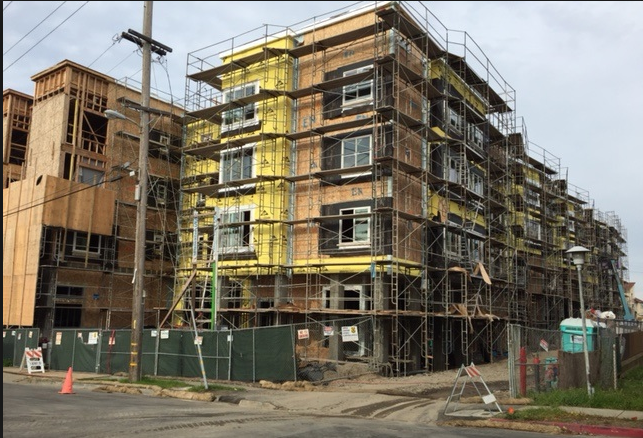
Senator Nancy Skinner. (Photo: Kevin Sanders for California Globe)
Extending the ‘Housing Crisis Act’ with SB 8
Prohibits certain local actions that would reduce housing capacity
By Chris Micheli, September 17, 2021 1:50 pm
On September 16, 2021, Governor Gavin Newsom signed into law Senate Bill 8 by Sen. Nancy Skinner (D-Berkeley), which would extend the Housing Crisis Act of 2019. It is Chapter 161.
Section One of the bill amends Section 65589.5 of the Government Code to extend from 2025 to 2030 the definitions of “deemed complete, “objective,” and “determined to be complete.” It also extends from 2025 to 2030 the provision related to a local agency requiring or attempting to requiring a housing development project to comply with an ordinance, policy, or standard not adopted and in effect when a preliminary application was submitted.
In addition, the Housing Accountability Act (HAA) is amended to specify that it does not prohibit a housing development project for affordable housing from being subject to ordinances, policies, and standards adopted after the preliminary application was submitted if the project has not commenced construction within 3.5 years. “Affordable housing project” is defined as a housing development that satisfies these requirements: Units within the development are subject to a recorded affordability restriction for at least 55 years, and all of the units within the development, excluding managers’ units, are dedicated to lower income households. Finally, it extends the HAA from 2025 to 2034.
Section Two of the bill amends Section 65905.5 of the Government Code to expand the definition of “hearing” to include any appeals. The bill also adds the following definitions of “housing development project” to the existing single definition of the term: Includes, but is not limited to, projects that involve no discretionary approvals and projects that involve both discretionary and nondiscretionary approvals, as well as a proposal to construct a single dwelling unit.
In addition, the bill adds that the receipt of a density bonus including any incentives, concessions, or waivers do not constitute a valid basis on which to find that a proposed housing development project is inconsistent, not in compliance, or not in conformity, with an applicable plan, program, policy, ordinance, standard, requirement, or other similar provision.
This section of the law also specifies that it applies to a housing development project that submits a preliminary application before January 1, 2030. Finally, the bill says that these amendments do not constitute a change in, but are declaratory of, existing law. However, the amendments to this section do not affect a project for which an application was submitted to the city, county, or city and county before January 1, 2022.
Section Three of the bill amends Section 65913.10 of the Government Code to extend this section of law from 2025 to 2030.
Sections Four and Five of the bill amends Section 65940 of the Government Code to clarify that a “development project” includes a housing development project.
Section Six of the bill amends Section 65941.1 of the Government Code to extend this section of law from 2025 to 2030.
Section Seven of the bill amends Section 65943 of the Government Code to clarify that a “development project” includes a housing development project and to extend this section of law from 2025 to 2030.
Section Nine of the bill amends Section 65950 of the Government Code to extend this section of law from 2025 to 2030.
Section Eleven of the bill amends Section 66300 of the Government Code to modify the prohibition on an affected county or affected city from reducing the intensity of land use within an existing general plan land use designation by changing “less intensive” to “reducing the intensity of land use” and by changing “lessen the intensity of housing” to “individually or cumulatively reduce the site’s residential development capacity.”
This section also provides that any existing occupants that are required to leave their units must be allowed to return at their prior rental rate if the demolition does not proceed and the property is returned to the rental market. Moreover, the right of first refusal for comparable units does not apply to (1) a development project that consists of a single residential unit located on a site where a single protected unit is being demolished and (2) units in a housing development in which 100 percent of the units, exclusive of a manager’s unit or units, are reserved for lower income households. It also defines the term “comparable unit.”
In addition, this section adds the following definitions: “affordable housing cost,” “affordable rent,” “persons and families of low or moderate income,” and “lower income households” by cross-referencing the definitions already contained in specified sections of the Health and Safety Code. This subdivision also does not apply to a housing development project for which an application was submitted after January 1, 2019, but prior to January 1, 2020, in a jurisdiction with a population of under 31,000 as of the 2020 United States Census that has a rent or price control ordinance. The term “concurrently” is also defined as the action being approved at the same meeting of the legislative body.
Section Twelve of the bill amends Section 66301 of the Government Code to specify that the chapter only applies to a housing development project that submits a preliminary application before January 1, 2030. It also extends the effective date of the chapter from 2025 to 2034, and provides a legislative intent statement that this section is intended to ensure that a housing development project that submits a preliminary application before January 1, 2030 remains subject to this chapter after January 1, 2030.
Section Thirteen of the bill amends Chapter 654 of the Statutes of 2019 to amend the legislative findings and declarations to extend the declaration of a statewide housing emergency to be in effect until January 1, 2030.
Sections Fourteen, Fifteen and Sixteen contain double-jointing language regarding several sections of the bill.
- Frequently Asked Questions about When Elected Officials Take Office - April 25, 2024
- Frequently Asked Questions About Ethics Training for Local Agencies - April 24, 2024
- Frequently Asked Questions about Privileges of Voters in California - April 23, 2024





MORE SIR SPAMALOT!!!
GET OUTTA HERE DUDE!